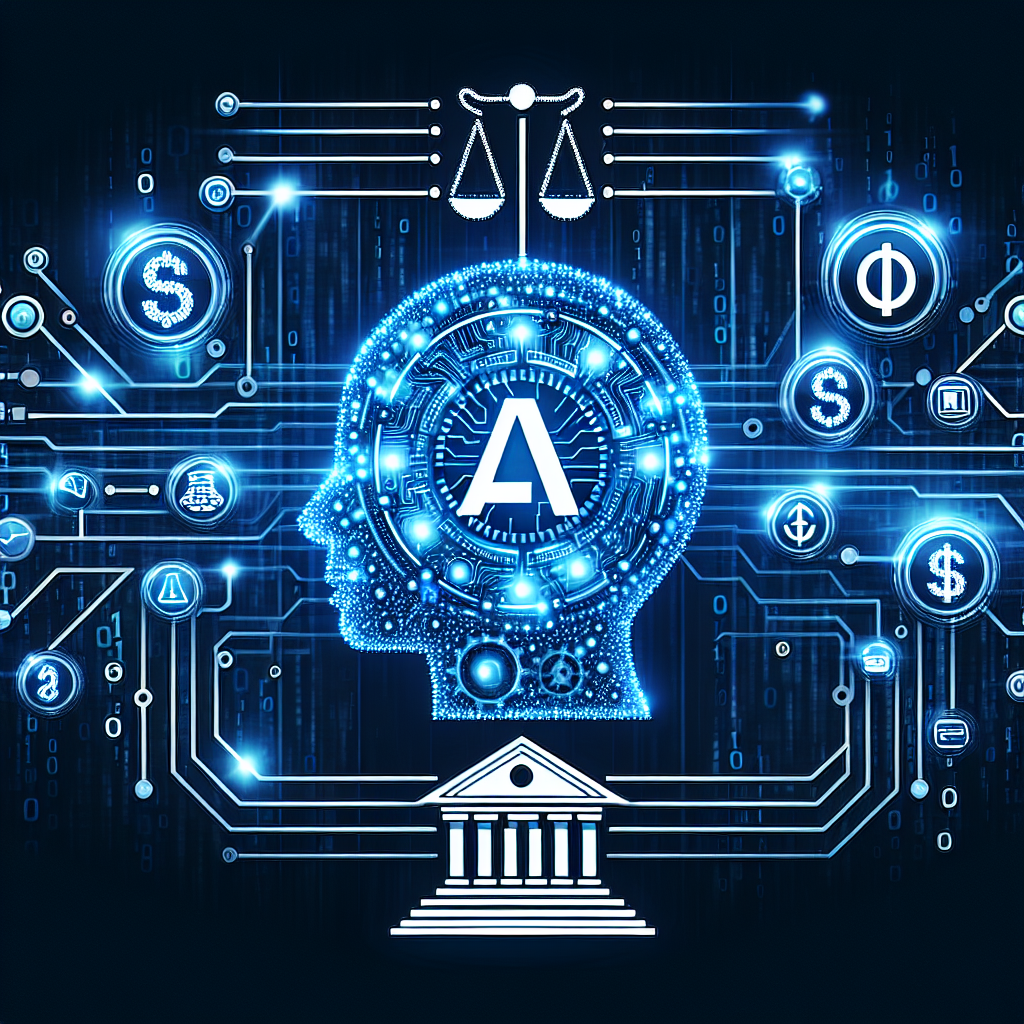Artificial Intelligence (AI) has become an increasingly prominent tool in the banking and finance industry. From fraud detection to customer service, AI has the potential to revolutionize the way financial institutions operate. However, as with any new technology, there are ethical considerations that must be taken into account when implementing AI in banking and finance.
One of the main ethical concerns surrounding AI in banking and finance is the potential for bias in decision-making. AI algorithms are trained on historical data, which can reflect existing biases in society. For example, if a bank’s historical data shows a bias against certain demographics, such as people of color or women, the AI algorithm may inadvertently perpetuate these biases in its decision-making processes. This can lead to discriminatory outcomes for certain groups of people, which is a significant ethical concern.
Another ethical concern related to AI in banking and finance is the issue of transparency. AI algorithms are often complex and difficult to understand, making it challenging for individuals to know how decisions are being made. This lack of transparency can lead to a lack of accountability and trust in the financial system, as customers may be unsure of why certain decisions are being made or how their data is being used.
Additionally, there are concerns about data privacy and security when it comes to AI in banking and finance. AI algorithms require vast amounts of data to function effectively, and this data may include sensitive personal information about individuals. There is a risk that this data could be misused or compromised, leading to privacy violations or security breaches.
Despite these ethical concerns, there are also many potential benefits to using AI in banking and finance. AI has the potential to improve efficiency, reduce costs, and provide better customer service. For example, AI-powered chatbots can provide immediate assistance to customers, reducing the need for human customer service representatives. AI algorithms can also help detect fraudulent activity more quickly and accurately than traditional methods, saving banks time and money.
To address the ethical concerns surrounding AI in banking and finance, it is essential for financial institutions to prioritize ethical considerations in their AI development and deployment processes. This includes ensuring that AI algorithms are trained on unbiased data, promoting transparency in decision-making processes, and implementing robust data privacy and security measures.
In addition to these proactive measures, regulators and policymakers also play a crucial role in ensuring that AI in banking and finance is used ethically. Regulators can set guidelines and standards for the ethical use of AI, enforce compliance with these standards, and hold financial institutions accountable for any ethical violations.
Overall, exploring the ethics of AI in banking and finance is essential to ensure that AI is used in a way that benefits society as a whole. By prioritizing ethical considerations and working collaboratively with regulators and policymakers, financial institutions can harness the power of AI to improve their operations while also upholding ethical standards and protecting the rights of their customers.
FAQs:
Q: Can AI be used to make decisions about loan approvals in banking?
A: Yes, AI algorithms can be used to analyze data and make decisions about loan approvals in banking. However, it is essential to ensure that these algorithms are trained on unbiased data to prevent discriminatory outcomes.
Q: How can financial institutions ensure transparency in their use of AI?
A: Financial institutions can promote transparency in their use of AI by providing clear explanations of how AI algorithms are being used and how decisions are being made. They can also offer avenues for customers to ask questions or raise concerns about the use of AI.
Q: What measures can financial institutions take to protect data privacy and security when using AI?
A: Financial institutions can protect data privacy and security when using AI by implementing robust data protection measures, such as encryption and access controls. They can also ensure that data is only used for authorized purposes and is not shared with third parties without consent.
Q: How can regulators and policymakers ensure the ethical use of AI in banking and finance?
A: Regulators and policymakers can ensure the ethical use of AI in banking and finance by setting guidelines and standards for the ethical use of AI, enforcing compliance with these standards, and holding financial institutions accountable for any ethical violations. They can also collaborate with industry stakeholders to develop best practices for the ethical use of AI.

